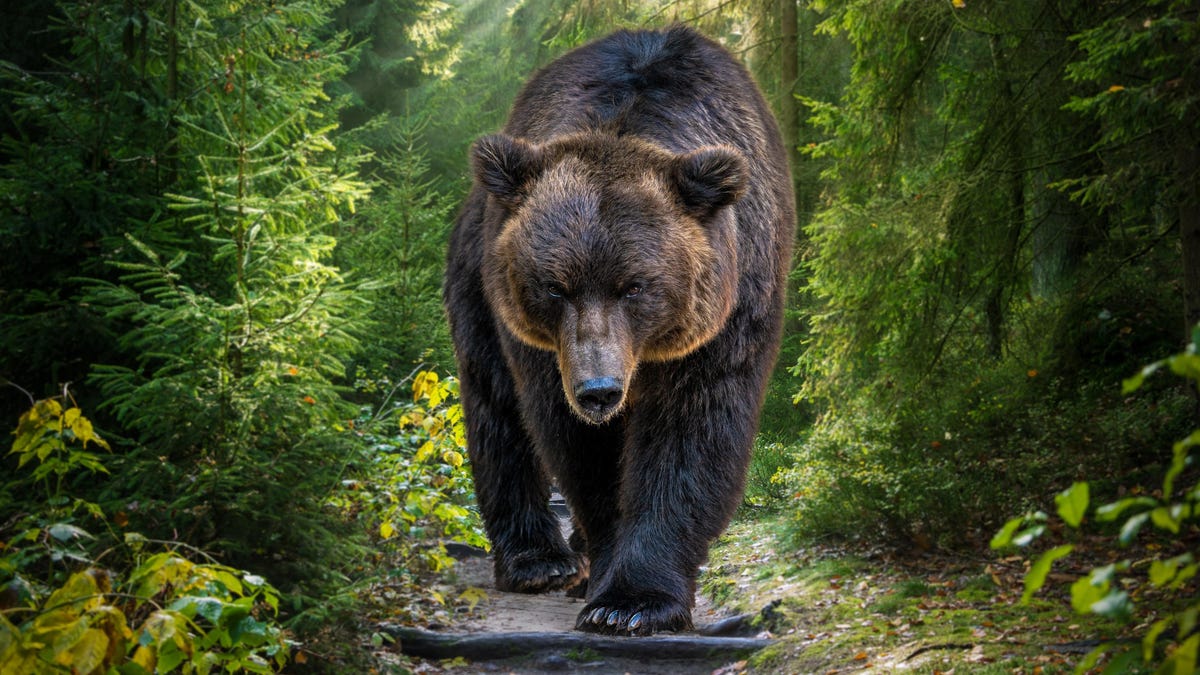[ad_1]

Bear encounters are no longer just a rural happenstance. This week, a bear was tranquilized and removed from the backyard in the suburban town of Haledon, New Jersey. In April, police in Asheville, N. C. received three reports of bear sightings in the city’s downtown area. These two communities join a growing list of states, including Oregon, Connecticut, and North Dakota, that have been experiencing an increase in reported bear sightings over the past few years.
If you’ve never come face-to-face with a bear, it’s possible you won’t be able to say that for much longer. So what should you do if your number gets called? Do you remember your Boy Scout or Girl Scout training? If not, here are a handful of tips courtesy of the National Park Service for if you find yourself on the wrong side of a bear encounter.
Identify yourself. The N.P.S. recommends calmly talking to the bear to give it the chance to identify you as a human and not a prey animal. Feel free to use one of these hypothetical questions if you’re at a loss for a conversation starter. Then make sure to stand your ground and slowly wave your arms. Don’t freak out if it comes closer or stands on its hind legs; it’s just trying to get a better look at you.
Don’t freak out. The N.P.S. points out that bears don’t want to attack people, they want to be left alone. They make bluffs towards you to get themselves out of the encounter, but you have to stay calm. Talking to the bear in low tones will help keep both you and it calm, whereas a scream or sudden movement may trigger an attack.
Move away slowly and sideways. If there’s two things you don’t want to do when faced with a bear, it’s making sudden movements and turning your back. Bears perceive humans moving sideways as non-threatening, which is important if your modus operandi is not to get attacked. By doing this, you’re able to avoid tripping or falling over, and you can keep an eye on the bear (without making direct eye-contact with the bear).
G/O Media may get a commission

Pre-order
AnkerMake M5 3D Printer
5X Faster Printing and AI Camera
Print Time Cut by 70% | Smooth 0.1 mm Detail | Built-In AI Camera Monitoring | Multiple-Device Hub | Multi-Color and Material Kit
Don’t run. If you’re face-to-face with the bear, now is not the time to take up running again. Bears can reach top speeds of up to 35 miles per hour. Usain Bolt himself couldn’t outrun that.
Don’t climb a tree. I hate to break it to you, but bears can climb faster than you, too. If your plan was to abandon the ground in favor of higher elevations, you may just end up painting yourself into a corner where a bear can easily climb right up there and get to you.
Source link

